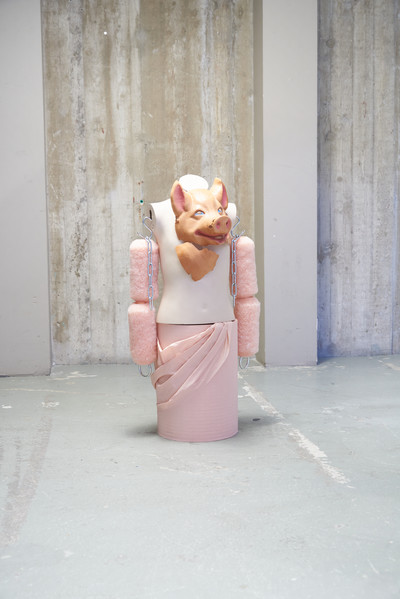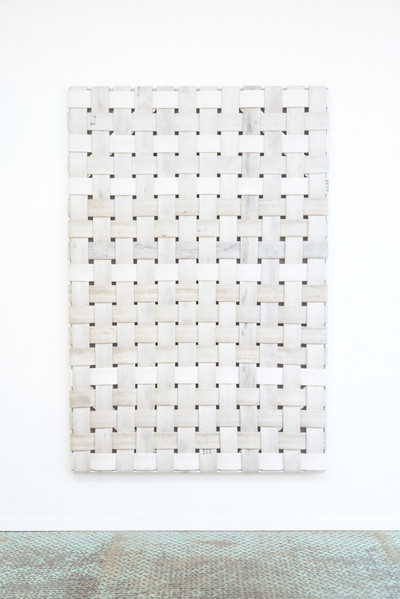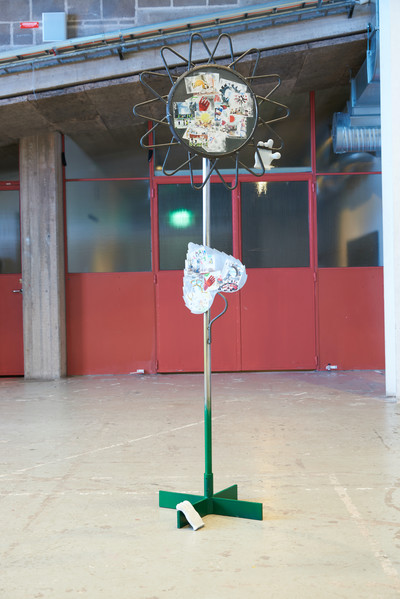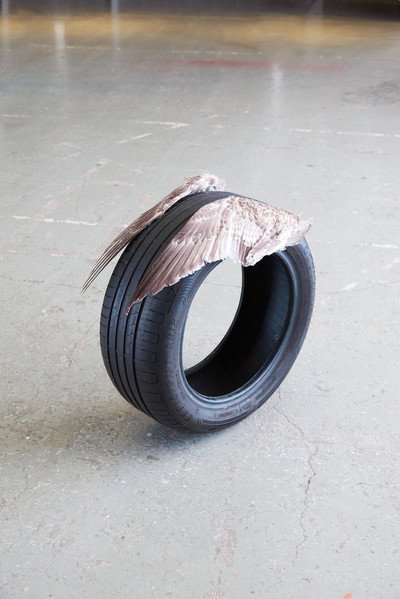The Swedish Fashion Council launches [X]Perience, aiming to overhaul the traditional fashion week model.
By Dominic Cadogan
The Swedish Fashion Council launches [X]Perience, aiming to overhaul the traditional fashion week model.
The fashion industry is at a crossroads; the path it has remained on for years is familiar, yet unstable and while the path ahead is uncertain, it could lead to somewhere brighter and better for all, should we be brave enough to take it.
The Swedish Fashion Council is one organization urging those with the power to bring about change to choose the latter. Since her appointment as CEO in 2018, Jennie Rosen has sought to do this herself, bringing the SFC’s focus to overhaul the staid fashion week that overlooked sustainability and supporting young designers. Along with creative director Robin Douglas and the SFC team, they devised [X]Perience – an alternative to the fashion week model that we’ve become accustomed to.
‘If somebody were to ask me in 10 or 20 years how I was working at the Swedish Fashion Council, but continued to support a system that doesn’t work, how could I justify that?’ Rosen reflects. ‘When I wake up in the morning, I feel like I need to do something to bring change.’
Built up from a 50-page Fashion Transformation report – exploring the future of the Swedish and wider fashion industry across business, sustainability, politics, technology and diversity – the event offers an alternative, not a replacement, for fashion week. A necessary and important part of the industry, but not the best time to look at the bigger picture – to note the shortcomings of the industry and aim to find solutions to eradicate them.
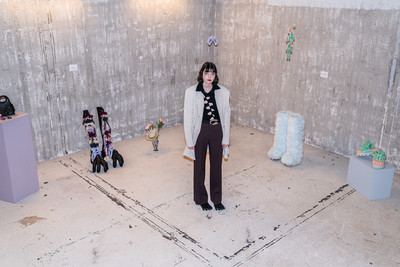
Beate Karlsson archive
Photography by Vanessa Tryde
While a traditional runway show appeared on the schedule – Rave Review, the proverbial guinea pig for SFC’s incubator programme – it also comprised talks and discussions with policy makers, scientists, and strategists, music performances by local artists, an exhibition, and the launch of MODE 2022 – a book created in collaboration with Nuda Paper. Emerging talent was the lynchpin of the programme of events: including Feben, Beate Karlsson, HODAKOVA, and Jade Cropper who were given free rein to expand their creative offerings and present them to an international audience.
‘This is the beginning, but we really believe in the vision that we have,’ Douglas says. ‘We want to do even better next time and have more people involved, so I’m looking forward to it already.’ During the interim period before the next [X]Perience, the SFC launched Fashion X – a digital platform to offer resources and continue conversations to bring about the change that they want to see.
Here, System speaks to Rosen and Douglas about the continued work they’ve been doing at the Swedish Fashion Council and the impact they hope it has on other fashion organizations around the world.
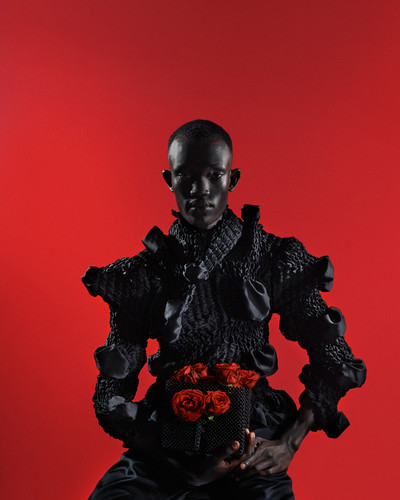
Feben
Photography by Joyce NG
[X]PERIENCE felt like the culmination of the work you’ve been doing since you joined the Swedish Fashion Council in 2018. What did you hope to achieve with it?
Jennie Rosen: The whole purpose of this was to show the entire scope of our vision and what we’ve been working on. We wanted to highlight the brands from our incubator that are all contributing to the future of fashion. We wanted to present the report because it’s the foundation of what we’re working on. The book is the creative translation of the report and, finally, we wanted to create a platform for discussion with people who aren’t here all of the time and have them as the voice. It was really important to bring in all different perspectives – people inside and outside the industry, as well as cultural expressions like music because they’re also going to be part of the future.
Robin Douglas: Also the community that we have here in the city of Stockholm. For such a long time we really wanted to take the opportunity to create a platform for this new wave and push for a new kind of energy because we have been stuck in a system that was very outdated.
I thought the pandemic would give the industry an opportunity to expand beyond the fashion week format that we’re used to, but we seem to have immediately reverted back as soon as possible. What do you think the SFC’s role is in this?
Jennie Rosen: If you’re going to have this kind of position, you also have to have some responsibility. With all the things we know, how could we just continue in the same way? So, we started to look into how we could actually make a change. The report felt like a very important statement to have as the foundation and then the incubator we started working on in 2018 with one test case: Rave Review. We knew that we needed to support talents in a different way to let them lead the future. Now more than ever, we need them and we need creativity. We need structure though, so that’s why it took quite a long time to create something that we could really build on.
What kind of feedback did you get from the various creatives involved?
Robin Douglas: Everyone who has attended and been involved in this week has felt very empowered and very inspired as well. We managed to put all different kinds of perspectives and creatives in the same rooms, where normally everyone is quite separate. The feedback we got from the local audience was that no one had gathered all of these voices together and at the dinners it was interesting to see how much innovation and creativity came from the conversations. In this city, people used to complain a lot, but now everyone is excited for the future and very inspired, which was one of our goals alongside building a platform that people want to be part of and contribute to.
‘For such a long time we really wanted to take the opportunity to create a platform for this new wave and push for a new kind of energy because we have been stuck in a system that was very outdated.’
What are some of the constraints that make it difficult to achieve the success you’re looking for with the platform?
Jennie Rosen: The first time is always the most difficult one and getting everybody together, but we’re already thinking that when we do something next time, we’ll have even more people involved. One thing we’re going to do in the future is continue the dialogue with various players. Polestar, for example, has the same vision as us, so we want to continue to work with them because together we can do so much. This is just a small starting point and I hope that we can inspire other people around the world to do the same and make it a movement.
For me, the highlight of the week was hearing Lisa Lang, director policy & EU affairs for Climate KIC, discuss how policy can be used to improve the industry. What were the highlights for you?
Jennie Rosen: It’s crucial that the industry needs to change and that will include a lot of regulation, so Lisa is a good example of someone great who can talk about policy and what’s happening in that area which is inspiring. It’s hard for us to choose, but I was surprised and happy that the report – which is normally quite dry for the industry – was really positively received.
Robin Douglas: I’m so happy that we were able to include music and art in the event – also the event that Jacob [Hansson] did for All Blues. For us as the Swedish Fashion Council, we need to collaborate with other creative expressions to put fashion in a more relevant context. It was very important for us to showcase what the people living here are listening to and what inspires them.

Rave Review
Photography by Cornelia Wahlberg
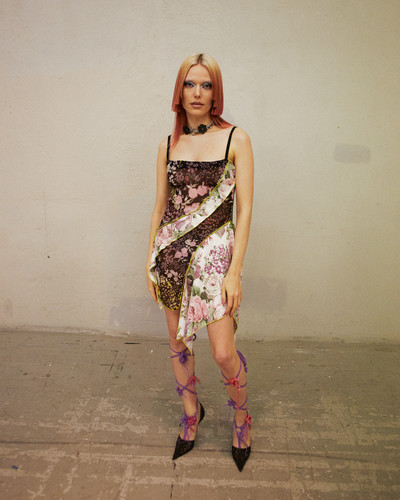
How do you hope to continue making progress in the future?
Jennie Rosen: This is only the starting point for us and what we’re trying to do with innovation, sustainability, and creative excellence – we can do so much more. We hope to continue the dialogue that we started here and that we can get more people involved and collaborate more.
I feel that other fashion councils around the world could learn from the work that is being done by the SFC to help improve the industry, or at least start conversations that will bring about change. How do you see yourself collaborating with them in the future?
Jennie Rosen: We need to meet and discuss things together. There is an initiative called the European Fashion Alliance and we had a gathering two weeks ago where we met with the other European fashion councils to discuss politics, sustainability, and innovation. We looked into the idea of making a report together and to have all fashion councils in Europe measuring the same KPIs, because right now the British Fashion Council has one, the German Fashion Council has another, and so does the Swedish Fashion Council but we don’t have the correct KPIs to measure it in the future. So, this is something that has been developed by the German Fashion Council since 2018.
We also discussed fashion week as a platform. They are good platforms because they’re like the megaphone and we mostly hear about the fashion industry through those platforms, but for them to be relevant, we need to look at what kind of system we support. If we only support the old system that everybody knows, it’s not going to work for the future. We can’t continue like this, we have all the information and it’s crucial we do something now.
Robin Douglas: We really hope that we can deliver this but also inspire other fashion councils to take action. It’s so much more than just putting on a show, it’s about being hands on.
‘If we only support the old system that everybody knows, it’s not going to work for the future.’
It’s about practicing what you preach. As we know, there’s lots of talk about diversity in fashion, but so many brands and organizations fall short. The SFC is one of the most diverse organizations I’ve seen in fashion and it goes beyond the team – can you tell me about your efforts towards this?
Robin Douglas: Diversity and representation is one of the core missions in our organisation and we believe that change comes from the inside, so we need a diverse team on the inside to actually make it work. It comes very naturally to us, but it’s also one of the missions that we’re working towards to inspire others. We initiated a pilot study in 2020, where we interviewed 80 people from the industry about diversity and representation and how the agenda can be pushed, but within the SFC we really believe that it is built into the infrastructure.
I have a vested interest in representation in fashion as a person of colour, but I really believe that diverse teams yield results beyond my own personal gain, which is a big part of the reason I think it’s so important to continue talking about and pushing for.
Jennie Rosen: Exactly. We’re looking into a new report especially on diversity and how we can measure it in a good way because we know we need it to be able to contribute innovation and creativity which are crucial for the future. It needs to be high up on the agenda in Sweden and all other countries.
What are you most optimistic about as you continue to work towards your vision of the future of fashion?
Jennie Rosen: Most of the brands that you saw here didn’t exist when I started at the SFC in 2018. If you want to make change, the possibility is there, but you have to have other people on board because no one can do it alone. I feel like what we started to do here and the conversations that happened here will get people on board to see that change is really possible and that makes me happy.

